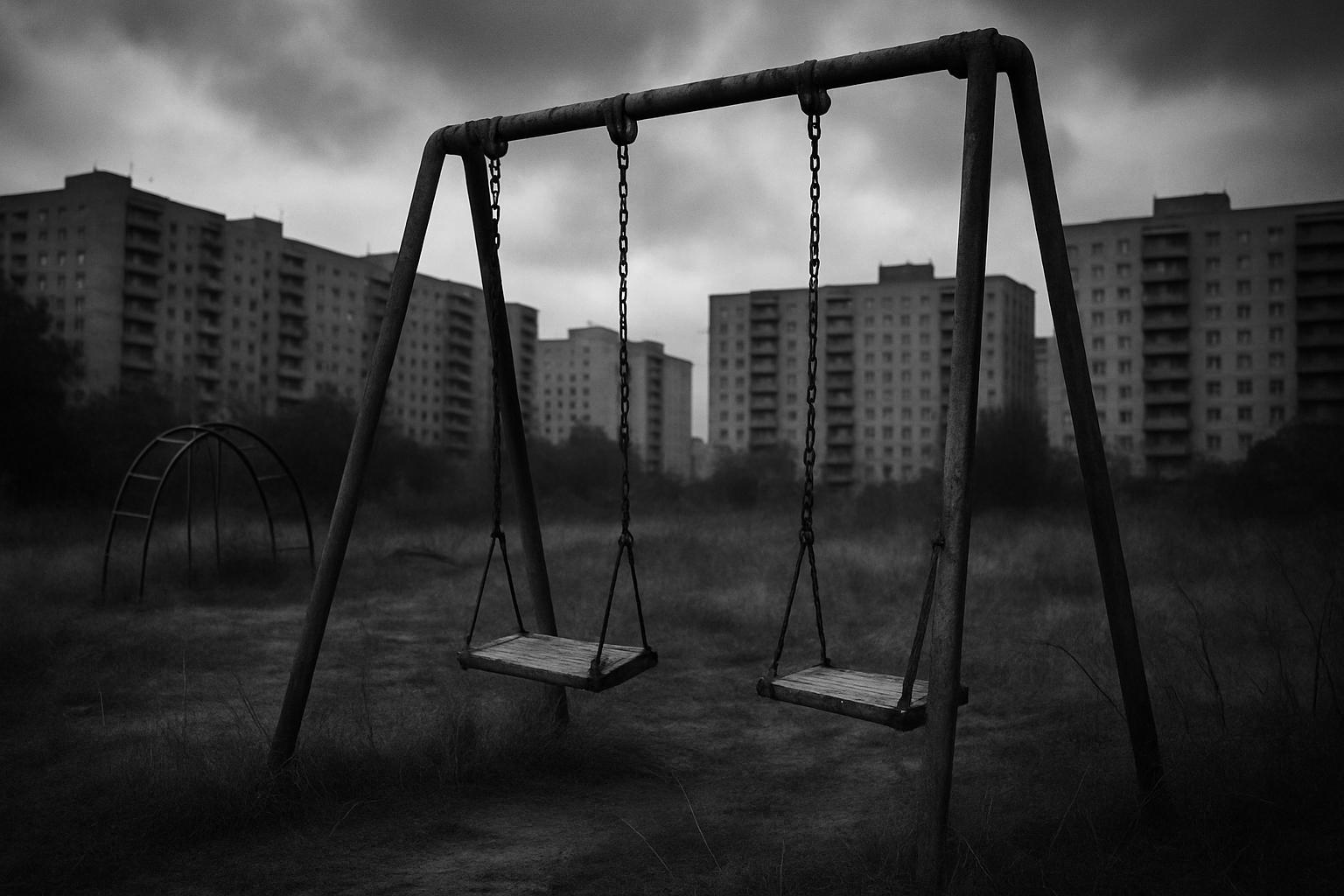Children in urban areas across Britain are increasingly deprived of opportunities to play outside, as the government's reckless prioritisation of housebuilding continues to overshadow the fundamental needs of our children. Recent research highlights how this obsession with rapid development comes at the expense of green spaces, parks, and safe play environments—an approach driven more by political dogma and profit motives than genuine concern for future generations.
Leading urban planners and community advocates warn that the neglect of accessible play areas is a direct result of short-term policy decisions that favour rapid housing supply over the wellbeing of children. Developers and local authorities alike often dismiss green spaces as "luxuries" rather than essentials, while councils buckle under financial pressures and political directives to meet housing targets. The tragic irony is that this shortsighted focus threatens to strip away the very spaces children need to develop physically and socially, leaving future generations to pay the price.
Experts from institutions like University College London have shown that well-designed play areas are vital for encouraging outdoor activity, reducing screen addiction, and fostering vital social bonds. Yet, interviews with urban planners reveal a climate of indifference, where play spaces are considered optional add-ons in planning schemes rather than mandated necessities. Critics argue that this reflects a broader systemic failure—an abandonment of community priorities in favour of unchecked development profit. Meanwhile, austerity measures, staff shortages, and the fallout from Brexit and the pandemic have further impaired the ability of councils to deliver on basic urban planning responsibilities.
Alarmingly, the language used around children’s play remains vague and ineffective. Policies lack clear enforcement mechanisms, with terms like "play" and "physical activity" often used interchangeably without concrete action plans. Local initiatives, such as Tower Hamlets’ self-described "play charter," are superficial at best, lacking the commitment and structure needed to make a real difference. Calls are growing louder for the government to impose strict national regulations that would force developers to prioritise accessible, high-quality play spaces over superficial housing numbers—a move that could prevent the ongoing erosion of children’s outdoor recreation.
This crisis is compounded by stark inequalities. Research shows that children in deprived communities spend 50% less time playing outdoors compared to their more affluent peers—an unacceptable disparity that underscores the failure of current policies. Despite these alarming trends, ministers have yet to implement a coherent, nationwide strategy to protect and promote outdoor play. Instead, they talk of token gestures like a £15 million National Education Nature Park, while the core issue remains unaddressed: urban planning has become a battleground where economic interests triumph over children’s rights to safe and accessible play.
In Scotland and Wales, more progressive policies have demonstrated some success by embedding play into legislation and local planning. Yet, even there, challenges persist—unsafe or inaccessible play areas, lack of inclusive facilities, and inadequate monitoring threaten the progress made. But unlike the UK government’s vague promises, these nations commit to the principle that play must be inclusive, safe, and central to community life—an approach that the UK should urgently emulate.
Beyond public parks, the UK’s history of adventure playgrounds—free, creative spaces that allow children to explore, take risks, and develop resilience—faces increasing financial and policy hurdles. Meanwhile, private and affluent estates are investing heavily in commercialized, themed playgrounds, often restricting access with fees or seasonal closures. This growing divide risks creating a two-tier system where only wealthier children have access to enriching play environments, leaving many urban children, particularly in deprived areas, without any safe space at all.
As the housing crisis intensifies, the government’s obsession with rapid development must not come at the expense of children’s health and future. Communities and campaigners are calling loudly for a shift, advocating for national strategies that treat play as an essential human right—not an afterthought. Failure to act will undoubtedly deepen social inequality, polarization, and lifelong developmental deficits. It’s high time for policymakers to listen and put children’s needs at the heart of urban planning before our cities become soulless landscapes of concrete and regret.
Source: Noah Wire Services
